Parents continuously seek ways to give their kids the best early development resources in today’s fast-paced world. The correct toys can have a significant influence on a 1-year-old’s development and learning. The top 10 learning toys for one-year-olds are included below since selecting the ideal playthings can be difficult. These toys guarantee your child has a great time while learning vital skills. They are not only entertaining but also educational. To assist you in making an informed choice, we’ve included in-depth assessments of each product in this post, covering its advantages and disadvantages.
Here is our list of Best Learning Toys for 1-Year-Olds
| Product | Rating | Price |
VTech Smart Shots Sports Center (Frustration-Free Packaging) | 9 | |
Learning Resources Farmer’s Market Color Sorting Set | 6 | |
LeapFrog Learning Friends 100 Words Book | 9.5 | |
VTech Touch and Learn Activity Desk Deluxe | 8 | |
ThinkFun Gravity Maze Marble Run Brain Game and STEM Toy for Boys and Girls | 8.3 | |
Fisher-Price Laugh & Learn Baby & Toddler Toy Smart Stages Learn With Sis Walker | 9 | |
VTech Pop-a-Balls Push & Pop Bulldozer, Yellow | 10 |
Why Learning Toys Matter
Learning toys are essential to a child’s cognitive and physical development; they are more than just a means of amusement. These toys promote a variety of senses and talents, such as social engagement, language development, problem-solving skills, and fine motor skills. They also provide the groundwork for a lifetime love of inquiry and discovery by making learning enjoyable and exciting.
How Educational Toys Promote Development
Children’s learning toys are essential components of their developmental path, not just a means of amusement. They function as the information and skill seeds, softly nourishing the youthful minds. Why are educational toys the unsung heroes of young children’s growth?
1. Development of Cognition
Learning toys provide the framework that supports the structure of cognitive development. They boost concentration and memory and help kids recognize colors, patterns, and forms. These toys are essentially the keys that open doors to a world of comprehension and problem-solving.
2. Improvement of Motor Skills
Playthings that require pushing, pulling, and stacking help develop fine and gross motor abilities. They function similarly to a machine’s gears. They support agility and balance development, pincer grasp refinement, and hand-eye coordination.
3. Social and Emotional Development
Like mirrors reflecting social and emotional situations, interactive learning toys help kids better comprehend and communicate their emotions and the value of cooperation, sharing, and empathy.
4. Language Learning
Play activities that require object identification, reading aloud, or singing are the building blocks for successful language development and communication. They transfer words and expressions to the young minds in a gentle manner, like whispers in the wind.
5. Imagination and Creativity
A child’s mind is like a canvas, and learning toys are like the brushes that help paint it with colors of creativity and imagination. They inspire kids to be creative and imaginative and build their worlds.
6. Developing Self-Respect
A child’s confidence and self-esteem are boosted when they use a toy to accomplish a task or solve an issue because it’s like receiving a small prize. It instills in them the resilience to face obstacles head-on and the delight of success.
6. Develop auditory and Sensory
Children’s sensory experiences can be enhanced by adding various flavors to sensory toys, which help them develop their senses of touch, sight, hearing, and smell. The symphony guiding the growth of aural senses and appreciation of music are musical toys.
8. Early Education in the Arts
Educational toys serve as a child’s gentle guide through the worlds of letters, numbers, and fundamental science principles, preparing them for success in school and beyond.
9. Promotes Self-Independent Play
Learning toys serve as friends, promoting self-directed play and instilling in kids the value of solitude and self-entertainment—all of which are critical for their mental health.
10. Organised Play
Building and organizing toys teach kids the value of planning, discipline, and order. They are similar to architects creating structured play.
Different Kinds of Educational Toys for Infants
It’s essential to consider the developmental milestones usual for one-year-olds when selecting learning toys. The educational toys appropriate for one-year-olds are listed below; each addresses a distinct developmental stage.
1. Musical Toys
At this point, sensory toys are essential because they support the development of the five senses. Playthings featuring diverse textures, vivid hues, and soothing noises encourage the development of the senses. Musical toys, textured balls, and soft plush toys are a few examples.
2. Toys for Developing Motor Skills
Children are developing their gross and fine motor skills at age one. It is crucial to have toys that support these abilities. Toys like push-pulls, stacking rings, and building blocks help them improve their hand-eye coordination and muscles.
3. Chord Toys
Toddlers can be introduced to sounds and rhythms with musical instruments such as xylophones, drums, and rattles. These playthings support the growth of aural senses and a passion for music.
4. Toys for Stacking and Sorting
Sorting boxes and stacking cups boost cognitive growth. They develop children’s precision and logical thinking by teaching them sizes, forms, and problem-solving techniques.
5. Engaging Educational Playthings
Interactive toys, such as those with flaps, buttons, or basic puzzles, encourage learning and curiosity. They enhance the child’s comprehension of cause and consequence by promoting inquiry and discovery.
6. Novels
Toddler books with huge, vibrant graphics or soft fabric are great for exposing them to the joys of reading. They develop a passion for reading and increase their vocabulary at a young age.
6. Vanity Items
Toys that float make bath time enjoyable and instructive. Bath books, water wheels, and rubber ducks are great tools for imparting fundamental knowledge and adding fun to bath time.
8. Outside Games
Playing outside is essential for general growth. Sandbox toys, ball games, and ride-on toys promote movement, hand-eye coordination, and environmental exploration.
9. Craft & Art Toys
Children are introduced to the world of colors and shapes through essential arts and crafts tools like playdough, coloring books, and large crayons, encouraging imagination and creativity.
Electronic toys for education
Screen usage should be minimized, but instructional electronic toys featuring lights, noises, and basic activities can be helpful in moderation. They can impart fundamental knowledge of numbers, colors, and concepts excitingly.
Top Picks for Best Learning Toys for 1-Year-Olds
1-VTech Smart Shots Sports Center (Frustration-Free Packaging)
The 1-VTech Smart Shots Sports Center is an excellent toy for young children to learn and play. It features a 2-in-1 basketball hoop and soccer net, allowing children to practice their motor skills and coordination.
The animated light-up LED scoreboard adds a fun and interactive element to the toy, counting baskets and playing encouraging sounds and phrases. The shape buttons on the toy introduce shapes, numbers, and sounds, promoting early learning.
The toy has a basketball and soccer ball, allowing children to engage in both sports. It operates on 3 AA batteries, which are not included.
The only drawback of this toy is that it is recommended for toddlers between 1 and 3 years old. This means that older children may not find it as engaging or challenging.
Overall, the 1-VTech Smart Shots Sports Center is a comfortable and safe toy for young children to learn and play. It offers a variety of activities and promotes motor skills development.
2-Learning Resources Farmer’s Market Color Sorting Set
The Learning Resources Farmer’s Market Color Sorting Set is a fantastic Educational toy for toddlers. It helps develop color recognition and sorting skills in a fun and interactive way.
This set includes 25 pieces of play food in 5 different colors and five baskets for sorting. The realistic-looking play food allows kids to explore new foods and expand their vocabulary while playing pretend.
The color-coordinated play food and baskets make it easy for kids to visualize and sort, helping them build critical school-ready skills. The set also comes with an activity guide and stickers for labeling.
One thing to note is that this toy has an age limit, so it may not be suitable for children below a certain age. However, it makes an excellent gift for holidays, birthdays, or just because. It’s also a perfect stocking stuffer for Christmas.
Overall, the Learning Resources Farmer’s Market Color Sorting Set is a high-quality and educational toy that provides hours of fun and learning for toddlers. It’s an excellent investment for parents who want to encourage their child’s development.
3-LeapFrog Learning Friends 100 Words Book
The LeapFrog Learning Friends 100 Words Book is a fantastic educational tool for young children. The book introduces over 100 age-appropriate words in various categories, such as animals, colors, and activities. The words are chosen by learning experts to ensure they suit young learners.
One of the great features of this book is that children can interact with it by touching the words on the pages. When a comment is connected, the book plays the word, sound effects, and even fun facts about the word. A light-up star button also plays the Learning Friends theme song and My Favorite Word.
Another advantage of this book is that it offers a bilingual experience. The words, songs, and instructions can be heard in English and Spanish, an excellent way for children to learn both languages.
The book is designed for children aged 18 months and older. It requires 2 AA batteries, which are included for demonstration purposes. However, it is recommended that new batteries be used for regular use.
Overall, the LeapFrog Learning Friends 100 Words Book is a comfortable and safe learning tool for young children. It provides an engaging and interactive way for children to learn new words and expand their vocabulary.
4-VTech Touch and Learn Activity Desk Deluxe
The VTech Touch and Learn Activity Desk Deluxe is a great toddler learning tool. It has five activity pages that can be explored directly on the desk, allowing your little one to learn new words and sounds.
One of the standout features of this activity desk is the LED display that helps with language skills. It illustrates the stroke order for letters and numbers and how to draw basic shapes. This makes learning the ABCs fun and easy for young children.
The desk can also be transformed into an easel and chalkboard, providing multiple ways to play and encouraging creativity. It even includes storage space for art supplies, making it convenient and organized.
The activity center also has unique features, such as a music player and a phone call simulation, which inspire imagination and add to the fun. The progress button reports on your child’s skill levels across the various learning activities, allowing you to track their progress.
The VTech Touch and Learn Activity Desk Deluxe includes over 100 vocabulary words, 20+ activities, and 20+ songs and melodies. It requires 4 AA batteries to operate, which can be a downside as they need to be replaced.
Overall, this activity desk is comfortable and safe for toddlers to use. It provides an interactive and engaging learning experience, making it an excellent investment for parents who want to encourage their child’s development.
5-ThinkFun Gravity Maze Marble Run Brain Game and STEM Toy for Boys and Girls
The ThinkFun Gravity Maze Marble Run Brain Game and STEM Toy is highly recommended for children aged 8 and up. It is trusted by families worldwide and has sold over 50 million units.
This toy is fun to play with and helps develop critical skills such as spatial reasoning and planning. It is a combination logic game, marble run, and STEM toy, providing young players with a great stealth learning experience.
The set includes 60 challenges of varying difficulty levels, from beginner to expert. It has a game grid, nine towers, 1 target piece, and 3 marbles. The clear and high-quality instruction manual makes it easy to learn and start playing immediately.
Although this toy is comfortable and safe, it is recommended for children aged 8 and up. It may be too advanced for younger children, especially those under 8 months old.
Overall, the ThinkFun Gravity Maze Marble Run Brain Game and STEM Toy is a fantastic educational toy that offers children entertainment and learning opportunities.
6-Fisher-Price Laugh & Learn Baby & Toddler Toy Smart Stages Learn With Sis Walker
The Fisher-Price Laugh & Learn Baby & Toddler Toy Smart Stages Learn With Sis Walker is an excellent toy for babies and toddlers to learn and play with.
This musical infant walking toy offers two ways to play as the baby grows. It can be used as a sit-and-play toy or as a stand-and-walk toy. This allows the toy to grow with your child and adapt to their developmental needs.
The Smart Stages feature offers three levels of play, with over 75 songs, sounds, and phrases that teach the alphabet, shapes, colors, numbers, and even some Spanish words. This toy provides a fun and interactive way for children to learn and explore.
Seven hands-on activities are also included, such as light-up piano keys, a roller, a spinner, and a flip page. These activities help to engage your child’s senses and fine motor skills.
The toy is designed with an easy-grasp handle and a sturdy, four-wheel base to help steady your baby’s first steps. It provides support and stability as they learn to walk.
However, it is essential to note that this toy is recommended for infants and toddlers ages 6-36 months. It may not be suitable for children older than 6 months. It is always important to consider the age and development of your child when choosing toys.
Overall, the Fisher-Price Laugh & Learn Baby & Toddler Toy Smart Stages Learn With Sis Walker is a comfortable and safe toy that offers educational and interactive play for babies and toddlers.
7-VTech Pop-a-Balls Push & Pop Bulldozer, Yellow
The VTech Pop-a-Balls Push & Pop Bulldozer is a fun and interactive toy perfect for learning and play. This push toy features a bulldozer design and comes with four colorful balls that pop out of the chimney and into the bucket when the handle is pushed.
The toy also features buttons that teach colors, numbers, phrases, and music, providing an educational element to playtime. The motion sensors in the toy also activate fun tunes and songs as the bulldozer is rolled, stimulating attention and coordination.
One of the pros of this toy is its comfort and safety. The chunky handle makes it easy for young children to grip and push, promoting motor skill development. The toy is also designed with safety in mind, with no small parts that could pose a choking hazard for young children.
One potential drawback of this toy is that it is recommended for children up to 6 months old. Older children may find the toy less engaging or have outgrown its features.
The VTech Pop-a-Balls Push & Pop Bulldozer is a great learning toy for young children. It provides interactive play and educational content to help children learn colors, numbers, and more.
Considerations When Choosing Learning Toys for 1-year-olds
When choosing learning toys for 1-year-olds, careful consideration is crucial to ensure the safety and developmental appropriateness of the toys. Here are the considerations to keep in mind:
1. Safety Considerations
Safety is the top priority. Select toys without small, detachable parts that could pose a choking hazard. The materials should be non-toxic and durable, with smooth edges to prevent injuries. Always check for relevant safety certifications and adhere strictly to age recommendations on toy packaging.
2. Age-Appropriate Toys
Toys should be suitable for a one-year-old’s developmental stage. Inappropriate toys, either too advanced or too simplistic, can lead to frustration or boredom. Look for toys that match their growing abilities and can challenge them in a fun and engaging way.
3. Educational and Developmental Value
Choose educational and developmental toys that promote cognitive, motor, sensory, and socio-emotional development. Learning toys should foster curiosity, creativity, and problem-solving skills, enabling children to explore and learn about the world around them.
4. Interactive and Engaging
Toys should capture a child’s attention and encourage interaction. Interactive toys with buttons, textures, sounds, or lights can provide endless amusement while enhancing learning experiences. They should motivate children to explore, think, and learn.
5. Durable and Long-Lasting
Opt for toys that can withstand the rigorous play of one-year-olds and last for a substantial period. Durable toys offer more extended learning opportunities and better value for money.
6. Budget-Friendly Options
While expensive toys are tempting, many affordable options are equally educational and entertaining. It’s essential to balance the budget without compromising the quality and educational value of the toy.
7. Multi-functional Toys
Select toys that offer various play opportunities and learning experiences. Multi-functional toys can keep children engaged for extended periods and provide diverse learning experiences, maximizing the toy’s value.
8. Positive Customer Reviews
Before purchasing, it’s wise to read customer reviews and testimonials. They can provide insights into the toy’s durability, safety, and entertainment value, helping you make an informed decision.
Conclusion
In conclusion, choosing suitable learning toys for one-year-olds fosters growth and development. Educational Toys, Developmental Toys, Interactive Toys, and Sensory Toys play a pivotal role in nurturing young minds, offering them the stimulation and challenges needed for learning and development. These toys are more than just playthings; they are the building blocks that lay the foundation for a child’s future knowledge and understanding, fostering curiosity, exploration, and intellectual growth.
When selecting learning toys for 1-year-olds, consideration of the child’s developmental stage, interests, and safety are paramount. Providing a variety of Learning Games, Skill-Building Toys, and Sensory Enriching Toys will ensure a well-rounded development, paving the way for a lifetime of learning and discovery.
FAQS
How do I choose the suitable learning toy for my 1-year-old?
Look for toys that are safe, age-appropriate, educational, engaging, durable, and within your budget.
Are electronic learning toys beneficial for 1-year-olds?
Electronic learning toys can offer interactive learning experiences, stimulate sensory development, and keep children engaged, but they should be used in moderation and balanced with traditional toys.
How much should I spend on a learning toy?
The amount spent should align with your budget, but it’s crucial to prioritize quality, safety, and educational value over price.
What educational toys should a 1-year-old have?
- Stackable rings or blocks
- Soft fabric books with different textures
- Shape sorters
- Musical instruments like baby drums or shakers
- Large piece puzzles
What toys are suitable for baby development in the first year?
- High-contrast black-and-white toys
- Soft rattles
- Mirrors
- Teething toys
- Cloth books
What toys improve child development?
- Building blocks
- Art supplies for creative expression
- Puzzles
- Role-playing toys like dolls or action figures
- Board games for older children
What toys help babies learn?
- Sensory toys with different textures, sounds, and colors
- Interactive toys, like ones with buttons that cause reactions
- Shape sorters
- Simple musical instruments
- Toys that encourage crawling or walking
Do babies need educational toys?
While babies benefit from toys that stimulate their senses and foster development, it’s also essential for them to have unstructured playtime and interaction with caregivers.
What are Montessori toys?
Montessori toys are based on the Montessori method of education. They are typically made of natural materials designed to be self-correcting, encouraging children to learn at their own pace. Examples include wooden stacking toys, bead sequencing sets, and sandpaper letters.
Do 1-year-olds need toys?
Toys can benefit a 1-year-old’s cognitive and motor development, but interaction with caregivers, exploring their environment, and unstructured play are equally essential.
Are toys necessary for babies?
While toys can be beneficial, babies also thrive with simple household items, caregiver interaction, and sensory experiences from their environment.
Are Baby Einstein toys good?
Baby Einstein toys are designed to be educational and stimulate development. Many parents find them beneficial, but their effectiveness can vary from child to child, like all toys.
What are the benefits of playing with toys?
- Cognitive development
- Fine and gross motor skill development
- Social skills enhancement
- Problem-solving abilities
- Creativity and imagination stimulation
What toys are best for cognitive development?
- Puzzles
- Building blocks
- Memory games
- Matching games
- Interactive electronic toys that challenge thinking
What toys are suitable for language development?
- Books
- Dolls or action figures for role-playing
- Educational apps or toys that promote vocabulary
- Sing-along toys or music players
- Board games that require verbal interaction
How many toys should a child have?
The quantity isn’t as crucial as the quality. A few well-chosen toys that cater to a child’s interests and development can be more beneficial than a room full of toys they don’t engage with.
What is the toy age in psychology?
The “toy age” isn’t a standard term in psychology. However, Jean Piaget, a famous developmental psychologist, divided childhood into stages based on cognitive development. The “Preoperational stage” (ages 2-7) might be what’s often referred to as the “toy age” since play is dominant during this period.
Why are baby toys important?
- They stimulate sensory and cognitive development.
- Encourage fine and gross motor skills.
- Provide opportunities for problem-solving and understanding cause and effect.
- Foster creativity and imagination.
- Help in social interaction and understanding of the world around them.
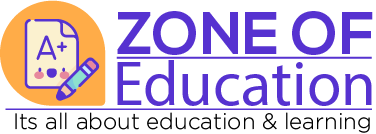
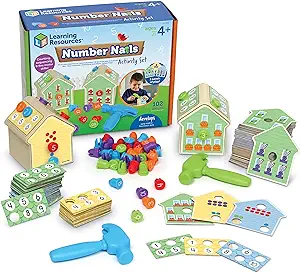




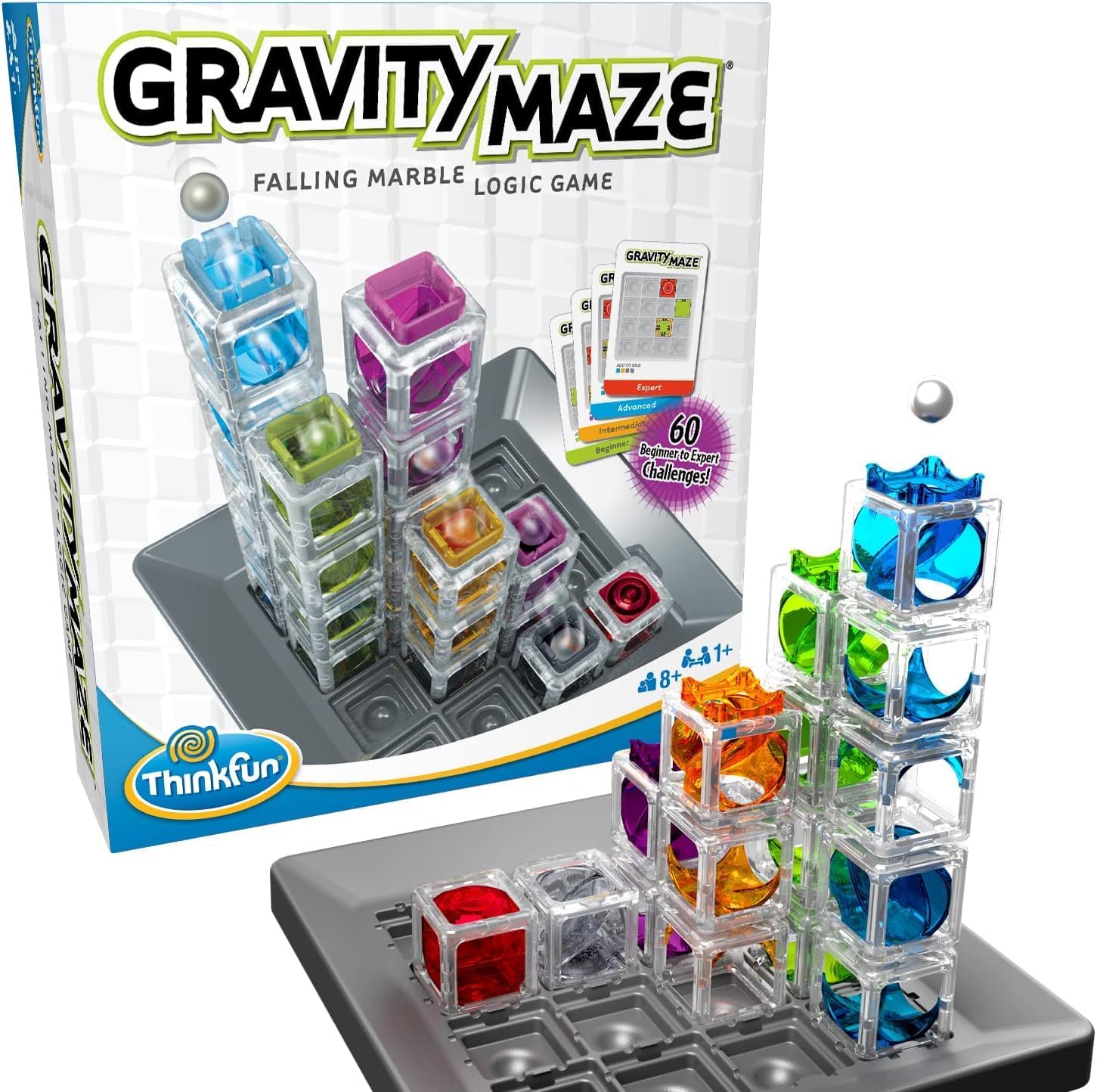


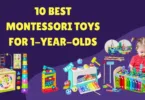
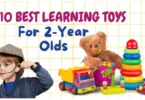

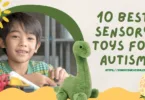
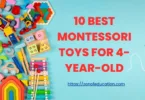
Dear zonofeducation.com administrator, Thanks for the well-researched and well-written post!
[…] four years of a child’s life are extremely crucial because it is during this time that they are developing and learning. They need to be taught the skills needed for them to be independent and self-sufficient in later […]
[…] education to be a preparation and a training for the complete life. Bernard Shaw believed that education must aim not only at the individual’s development but also at making the individual capable of […]
[…] pragmatics, the ultimate reality of all knowledge is the harmony of man with the environment. Education develops social skills that facilitate one’s life. The school is a miniature society that prepares the child for future […]
[…] pragmatism according to which the aim of all knowledge is harmony of the man with the environment. Education develops social skills that facilitate one’s life. School is a miniature society that prepares the child for future […]
[…] Freedom is required for natural development. Education should convert imperfection into perfection. Education should be according to the individual’s needs and abilities of the child. The relation of the child to himself should be strengthened by […]
[…] instruction is an instructional approach that recognizes and addresses students’ diverse learning needs, interests, and readiness levels in the classroom. It aims to create inclusive and engaging […]
[…] is also important in education because it can help students develop a more sophisticated understanding of the […]
[…] believed the habits that each of us develops result from our unique operant learning […]
[…] institution and another that needs more improvement. They are critical in providing information for top decision-makers to enhance learning, teaching methods, curriculum, and student […]
[…] emotional skills: The emphasis on individual compliance can hinder opportunities for collaborative learning and communication skills […]
[…] students have greater control over their learning journey, allowing them to take ownership of their education and develop self-regulated learning skills. They can pause, rewind, and review content int as needed, ensuring comprehension and mastery of […]
Nice post. I was checking constantly this blog and I am impressed! Very useful information specifically the last part I care for such information a lot. I was seeking this particular information for a long time. Thank you and best of luck.
[…] challenges and issues. Researchers investigate factors that influence learning outcomes, develop interventions to address educational needs and evaluate the effectiveness of educational programs and interventions using scientific […]
You seem to be very professional in the way you write.::’~*
I think other site proprietors should take this website as an model, very clean and excellent user genial style and design, let alone the content. You’re an expert in this topic!